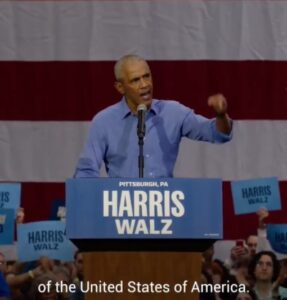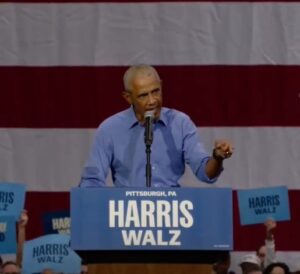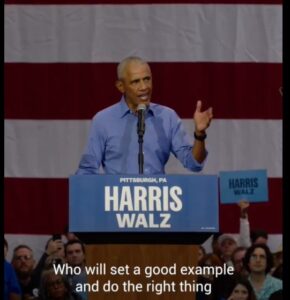The Impact of Misogyny on Black Men in the 2024 Election
The Influence of Misogyny on Black Male Voters in the 2024 Election
Explore how misogyny affects Black men’s political engagement in the 2024 election, highlighting key issues and community responses.
As the 2024 election season heats up, discussions surrounding the intersection of race, gender, and politics have taken centre stage. A recent article by the Associated Press sheds light on a troubling trend: the impact of misogyny on Black men’s political engagement. This issue not only influences voter turnout but also shapes the narratives surrounding candidates and their platforms.
Understanding the Context
 The political landscape in the United States has always been complex, particularly for marginalized communities. Black men, in particular, face unique challenges that intertwine race and gender dynamics. The current election cycle has seen a resurgence of misogynistic rhetoric that disproportionately affects how Black men are perceived and how they engage with politics.
The political landscape in the United States has always been complex, particularly for marginalized communities. Black men, in particular, face unique challenges that intertwine race and gender dynamics. The current election cycle has seen a resurgence of misogynistic rhetoric that disproportionately affects how Black men are perceived and how they engage with politics.
Historical Background
Historically, Black men have navigated a political environment fraught with systemic racism and gender biases. The legacy of slavery and Jim Crow laws has left an indelible mark on how Black individuals participate in civic life. Misogyny adds another layer of complexity, often manifesting in harmful stereotypes that undermine their voices and contributions.
Misogyny’s Role in Political Engagement
1. Stereotyping and Representation
Misogyny often leads to harmful stereotypes that portray Black men as aggressive or untrustworthy. These stereotypes can discourage them from participating in political discourse or seeking office themselves. The media plays a significant role in perpetuating these narratives, often framing Black male candidates through a lens of scepticism rather than competence.
2. Impact on Voting Behavior
Research indicates that misogynistic attitudes can influence voting behaviour among Black men. Some may feel alienated from candidates who do not address issues pertinent to their experiences or who perpetuate sexist views. This alienation can lead to lower voter turnout, which ultimately impacts election outcomes.
Key Issues at Stake
1. Policy Representation
 Black men are often underrepresented in policy discussions that affect their communities. Issues such as criminal justice reform, healthcare access, and economic opportunities are critical for this demographic. Candidates who fail to address these issues risk losing support from Black male voters.
Black men are often underrepresented in policy discussions that affect their communities. Issues such as criminal justice reform, healthcare access, and economic opportunities are critical for this demographic. Candidates who fail to address these issues risk losing support from Black male voters.
2. Intersectionality
The intersectionality of race and gender means that policies must consider the unique challenges faced by Black men. For example, discussions around reproductive rights often overlook how these issues affect Black families differently. Candidates who acknowledge this intersectionality may resonate more with voters.
Community Responses
In response to the misogyny present in this election cycle, community organizations are mobilizing to educate and empower Black men to engage politically. Initiatives aimed at increasing voter registration and participation are crucial for amplifying their voices.
1. Grassroots Movements
Grassroots organizations are working tirelessly to combat misogyny and promote political engagement among Black men. These groups focus on creating safe spaces for discussion and fostering leadership skills through workshops and training sessions.
2. Media Representation
Efforts to improve media representation of Black men in politics are also underway. By highlighting positive stories and achievements, advocates aim to counteract negative stereotypes that contribute to misogynistic attitudes.
The Role of Candidates
Candidates must recognize the importance of addressing misogyny directly within their platforms. This involves not only condemning sexist behaviour but also actively promoting policies that support gender equity and racial justice.
1. Inclusive Campaigning
Inclusive campaigning practices can help bridge the gap between candidates and Black male voters. This includes engaging with community leaders, listening to constituents’ concerns, and prioritizing issues that matter most to this demographic.
2. Challenging Misogyny
Candidates should take a stand against misogyny within their parties and broader political discourse. By promoting respectful dialogue and challenging harmful narratives, they can foster an environment where all voices are valued.

Conclusion: A Call for Change
As we approach the 2024 elections, it is imperative to address the impact of misogyny on Black men‘s political engagement. By understanding the historical context and recognizing the key issues at stake, candidates and voters alike can work towards creating a more inclusive political landscape.
The fight against misogyny is not just about empowering one group; it’s about fostering a democracy where all voices are heard and respected.
As communities mobilize for change, it is crucial for everyone—especially those in positions of power—to commit to dismantling harmful stereotypes and promoting equitable representation. In doing so, we can ensure that the upcoming elections reflect the diverse perspectives necessary for a truly representative democracy.
